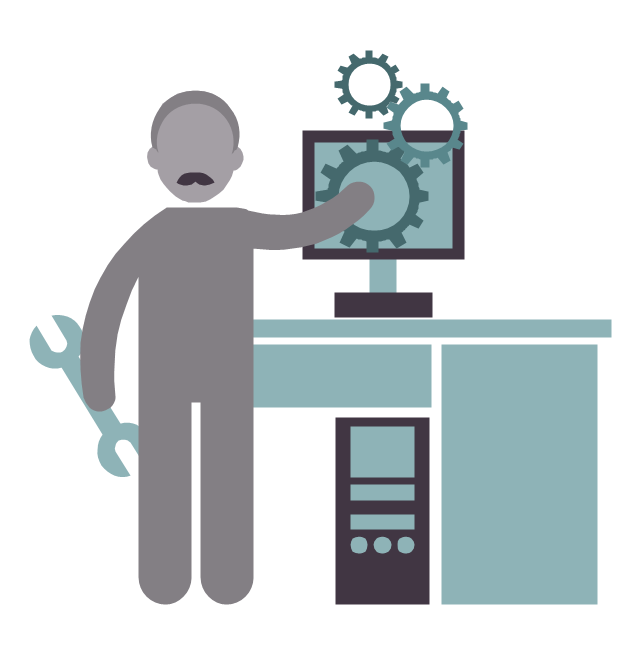
Whenever people think about
computers, they are most likely thinking about the computer machine such as the
television-like monitor screen, the keyboard to type on, the printer which
produces copies of text-and-graphics material, and the computer housing called
“the box” which contains the electronic parts and circuits (the central
processing unit) that receives/ stores data and direct computer operations. The
computer machine or hardware is naturally an attention-getter.
It’s more difficult to
realize, however, that the computer hardware can hardly be useful without the
program or system that tells what the computer machine should do. This is
called software.


There
are two kinds of software:


The system software
This is the operating system that is found or bundled inside all computer machines.

This is the operating system that is found or bundled inside all computer machines.
The application software
This contains the system that commands the particular task or solves a particular problem.
This contains the system that commands the particular task or solves a particular problem.

In
turn the applications software may be:
(a) A custom software that is made for specific tasks
often by large corporations, or
(b) A commercial software packaged for personal computers
that helps with a variety of tasks such as writing papers, calculating numbers,
drawing graphs, playing games, and so much more.
Microsoft
Windows
Also referred to as program,
Microsoft Windows or Windows for short is an operating environment between the
user and the computer operating system. Also called a shell, it is a layer that
creates the way the computer should work. Windows uses a colorful graphics
interface (called GUI – pronounced “gooee”) that can be seen on the computer
screen or monitor whenever the computer is turned on.
The user can work with on-screen pictures (icons) and
suggestions (menus) to arrive at the desired software. Windows 95 (now improved
with Windows 2003 and 2007) is software designed for Microsoft Windows.
Actually, Windows is in itself a self-contained operating system which
provides:

1. User
convenience – just click a file name to retrieve data or click from program to
program as easy as changing channels in your TV screen.


2. A new look
– fancy borders, smooth and streamlined text fonts.

3. Information center – Windows puts all communications activities (e-mail, downloads etc. in a single screen icon); adapts/configures the computer for the Internet
4.Plug and play – configures the computer with added components, such as for sound and video.
Instructional Software

Instructional
software can be visited on the Internet or can be bought from software shops or
dealers. The teacher through his school should decide on the best
computer-based instructional (CBI) materials for the school resource
collection. But beware since CBIs need much improvement, while web-based educational
resources are either extremely good or what is complete garbage.
Walang komento:
Mag-post ng isang Komento